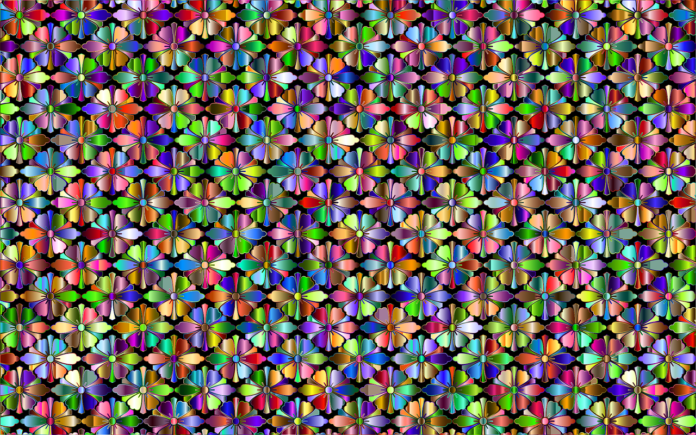Reqwest is a popular Rust programming language crate used for making HTTP requests. In the realm of web development, HTTP (HyperText Transfer Protocol) is fundamental, enabling communication between clients, such as web browsers, and servers. Understanding and utilizing HTTP is essential for building web applications and services.
The reqwest crate simplifies the process of making HTTP requests from a Rust application. It provides an intuitive and ergonomic API for sending HTTP requests, handling responses, and dealing with various aspects of web communication. This includes handling cookies, creating HTTP clients, configuring request headers, handling response status codes, and more. By utilizing reqwest, developers can seamlessly integrate their Rust applications with web services, retrieve data, and interact with APIs.
To begin using reqwest, you first need to add it as a dependency to your Rust project. This involves specifying the reqwest crate in your project’s Cargo.toml file. Cargo, Rust’s package manager, will then download and manage the reqwest crate, ensuring it is available for your project. Once imported, you can utilize reqwest’s functions and structures to craft HTTP requests and process the resulting responses.
An essential component of reqwest is its ability to handle various HTTP methods like GET, POST, PUT, DELETE, etc. Each of these methods serves a specific purpose. For instance, GET is typically used to retrieve data from a server, while POST is used to send data to be processed. By utilizing these methods, developers can create versatile applications that interact with web services efficiently.
Moreover, reqwest enables developers to customize requests by setting headers, timeouts, and other configurations to suit specific use cases. This level of flexibility is crucial when integrating with APIs that require specific headers or authentication mechanisms. Additionally, reqwest provides capabilities to handle asynchronous requests, allowing for non-blocking, concurrent communication with multiple endpoints.
Reqwest is a powerful tool in the Rust ecosystem, providing a convenient and efficient way to make HTTP requests and interact with web services. Its ease of use, flexibility, and robust feature set make it a go-to choice for Rust developers seeking to integrate their applications with the vast world of web-based resources and APIs.
Reqwest’s ease of use is exemplified through its intuitive API design, allowing developers to quickly grasp its functionality and seamlessly integrate it into their projects. The crate follows a builder pattern, which facilitates the construction of complex requests by chaining method calls. This approach enhances code readability and maintainability, enabling developers to create well-structured HTTP requests with ease. Whether it’s setting request headers, configuring timeouts, or handling redirects, reqwest’s API offers methods for virtually every aspect of HTTP communication.
Additionally, reqwest provides features for handling response data efficiently. It supports various response formats such as JSON, HTML, plain text, and more. Developers can choose the format that best suits their application’s needs and seamlessly parse the response data for further processing. This capability is crucial when interacting with APIs that return data in specific formats, allowing for seamless integration and consumption of the provided information.
Furthermore, error handling is a fundamental aspect of any robust software, and reqwest does not disappoint in this regard. It offers comprehensive error types that allow developers to gracefully handle different error scenarios that may occur during the HTTP request process. Whether it’s a network error, invalid response, or other issues, reqwest ensures that developers have the tools to implement appropriate error handling strategies, enhancing the reliability and stability of their applications.
Reqwest’s ability to handle cookies and sessions is another valuable feature. This enables the creation of stateful interactions with web servers, vital for applications that require authentication and maintaining user sessions. By utilizing the cookie jar provided by reqwest, developers can manage cookies seamlessly, enhancing the security and user experience of their applications.
Reqwest is a versatile and feature-rich crate in the Rust ecosystem, providing developers with a powerful tool for making HTTP requests and interacting with web services. Its intuitive API, support for various response formats, robust error handling, and cookie/session management capabilities make it an indispensable choice for Rust developers. With reqwest, developers can confidently build applications that communicate effectively with web servers, retrieve data, and integrate seamlessly with the broader web ecosystem.
Furthermore, reqwest integrates well with Rust’s asynchronous programming model, allowing developers to perform non-blocking, asynchronous requests. This is crucial for applications that require concurrent communication with multiple endpoints or when responsiveness is a key requirement. By leveraging asynchronous capabilities, developers can achieve better performance and responsiveness, leading to a more efficient and scalable application.
One notable feature of reqwest is its ability to handle HTTPS requests securely, ensuring that sensitive data is transmitted over encrypted connections. This is essential for applications that handle sensitive information such as passwords, payment details, or personal data. By default, reqwest validates SSL certificates, providing a secure foundation for web communication.
Another aspect worth mentioning is the extensibility of reqwest through middleware. Middleware allows developers to customize request and response behavior by intercepting and modifying requests or responses before they are sent or processed. This flexibility enables the implementation of advanced functionalities such as authentication mechanisms, request/response logging, or custom header manipulation, tailoring reqwest to specific project requirements.
Moreover, reqwest is actively maintained and supported by the Rust community, ensuring that it stays up-to-date with the evolving needs and standards of web development. The crate benefits from regular updates, bug fixes, and enhancements, guaranteeing a reliable and well-maintained solution for HTTP communication in Rust projects.
In summary, reqwest is a comprehensive and flexible HTTP client crate in the Rust programming language. It empowers developers to create sophisticated web applications and services by providing an intuitive API, support for various response formats, error handling mechanisms, and security features. Its integration with asynchronous programming, HTTPS support, extensibility through middleware, and ongoing community support make it an excellent choice for handling HTTP requests and interacting with web services in Rust. As Rust continues to gain traction in the software development landscape, reqwest remains a vital tool for building high-performing, secure, and reliable applications.






















